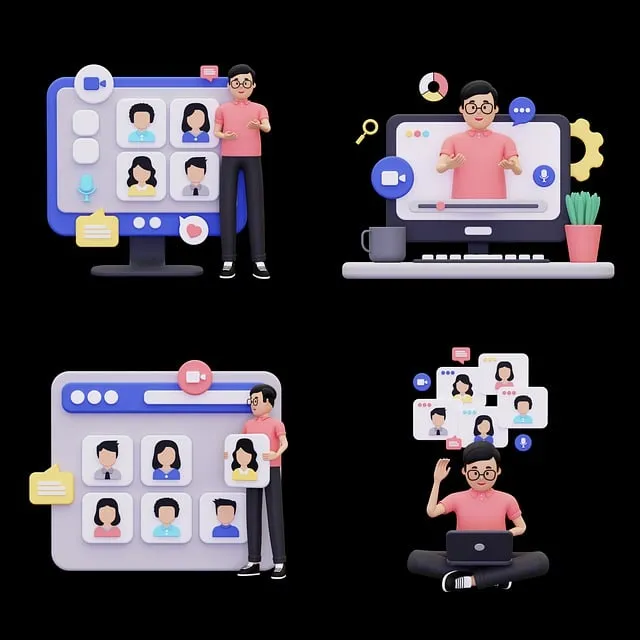In today's digital age, researchers and journalists require private internet access (PIA) to protect their identities and conduct sensitive work. PIA offers advanced encryption, masking IP addresses and preventing tracking, allowing users to browse discreetly. This is crucial for accessing geo-restricted content, maintaining research integrity, and ensuring anonymity in online searches, especially when dealing with controversial subjects or confidential sources, thereby enabling unfettered exploration. Setting up PIA involves signing up, downloading, configuring server locations, connecting securely, and verifying anonymity using tools like Stealthy Search Engine Results browser extensions.
In today’s digital age, academic researchers face growing challenges in maintaining online privacy and anonymity. With sensitive data at stake, accessing the internet securely becomes paramount. Private Internet Access (PIA), a leading VPN service, offers journalists and researchers an effective solution. This article explores PIA’s role in enhancing privacy and security for academic research, detailing its benefits, setup process, and how it enables users to browse stealthily, ensuring anonymous and safe search engine results.
- Understanding Online Anonymity for Researchers: The Need for Private Internet Access
- What is Private Internet Access (PIA) and How Does it Work?
- Benefits of PIA for Academic Research: Enhancing Privacy and Security
- Setting Up PIA for Safe and Stealthy Browsing: A Step-by-Step Guide for Journalists
Understanding Online Anonymity for Researchers: The Need for Private Internet Access

In today’s digital age, academic researchers often engage in sensitive studies that require a high level of discretion and privacy. As they explore complex topics, from social sciences to medical research, maintaining anonymity becomes paramount. Online activities, including literature searches and data collection, can leave digital footprints that might reveal their identities and compromise the integrity of their work. This is especially crucial for researchers examining controversial subjects or working in environments where political or societal pressures could impact their findings.
Private Internet access plays a vital role here, ensuring researchers’ online activities remain confidential. By utilizing tools like virtual private networks (VPNs), researchers can navigate the internet stealthily, securing their digital presence. This practice is especially beneficial when accessing academic databases or conducting exploratory research on sensitive matters. Furthermore, it helps protect them from unwanted scrutiny, allowing for more open and honest exploration of ideas without fear of repercussions, thus enhancing the overall integrity of scholarly inquiry, particularly in relation to achieving Stealthy Search Engine Results for Journalists.
What is Private Internet Access (PIA) and How Does it Work?

Private Internet Access (PIA) is a popular virtual private network (VPN) service designed to protect users’ online privacy and security. It operates by creating an encrypted tunnel between your device and PIA’s servers, ensuring that all internet traffic is securely routed through this connection. This means that when you browse the web, your IP address is hidden, making it nearly impossible for anyone to track your online activities or identify your location.
PIA works in a stealthy manner, especially beneficial for academic researchers conducting sensitive studies. It hides your real IP address and replaces it with one from a server in a different geographical location. This feature is particularly useful for journalists seeking to access geo-restricted content or maintain anonymity while researching stories that might expose them to personal risk. By using PIA, users can enjoy private and secure browsing sessions, ensuring their data remains confidential even as they explore the vast resources available on the internet.
Benefits of PIA for Academic Research: Enhancing Privacy and Security

For academic researchers, privacy and security are paramount when conducting their work, especially when delving into sensitive topics or accessing confidential data. Private Internet Access (PIA) offers a robust solution by providing an encrypted VPN service that masks users’ online activities, ensuring anonymity while browsing. This is particularly beneficial for journalists engaged in secretive research, allowing them to navigate the internet with stealth and discretion, protecting their sources and methods from prying eyes.
By utilizing PIA, researchers can gain access to geo-restricted resources and databases, enabling them to explore a vast array of information without leaving digital footprints. The advanced encryption technology ensures that their data remains secure during transmission, safeguarding against potential cyber threats. This level of privacy is crucial for maintaining the integrity of research, especially in fields where sensitive data or controversial subjects are involved, fostering an environment conducive to unfettered exploration and discovery.
Setting Up PIA for Safe and Stealthy Browsing: A Step-by-Step Guide for Journalists

Setting up Private Internet Access (PIA) is a crucial step for journalists aiming to maintain their privacy and anonymity online, especially when conducting sensitive research or reporting on controversial topics. PIA offers robust encryption and server locations worldwide, enabling users to browse the web securely and anonymously. Here’s a straightforward guide for journalists:
1. Sign up and Download: Begin by creating an account on PIA’s official website. Choose a subscription plan suitable for your needs and download the application compatible with your device’s operating system.
2. Configuration: After installation, launch PIA and select a server location. Choose one that aligns with your geographic focus or opt for a neutral location like the US or UK for broader anonymity. Configure additional settings according to your preferences, including DNS options and split tunneling if needed.
3. Connect Securely: Once configured, establish a connection by toggling the switch to ‘On’. PIA will now encrypt all your internet traffic, making it virtually impossible for third parties to track your online activities or identify you through search engines. This ensures journalists can explore Stealthy Search Engine Results without leaving traces.
4. Verify Anonymity: Utilize tools like browser extensions that check your current IP address and confirm that PIA has successfully masked it, ensuring a truly stealthy browsing experience for researchers delving into sensitive subjects.
For academic researchers, particularly those dealing with sensitive data or conducting investigations in controversial fields, Private Internet Access (PIA) offers a powerful tool for maintaining privacy and anonymity. By utilizing PIA’s encrypted VPN service, researchers can protect their digital footprint, ensuring secure and anonymous browsing. This is especially crucial when navigating the web for sources or accessing restricted content to achieve unbiased, unfiltered results—a key aspect in achieving credible academic research. With PIA, journalists and scholars alike can pursue their inquiries with enhanced peace of mind, knowing their online activities are shielded from prying eyes. This enables them to focus on uncovering insights, contributing to the advancement of knowledge without compromising ethical standards or intellectual freedom.
